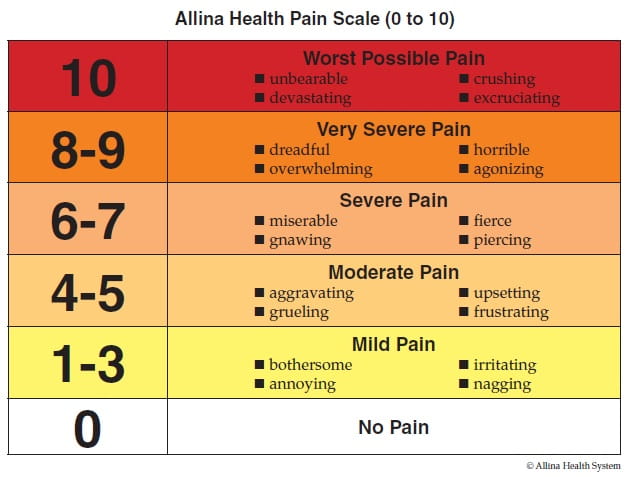
How to manage your pain after surgery
Pain
Pain is your body's response to injury, illness or surgery. It can come on suddenly (acute) or last a long time (chronic). Pain can be constant or it can come and go.
Pain affects every part of your life: eating, sleeping, work, interests and relationships. It can cause you to be stressed, depressed, tired or angry.
Your health care team is committed to helping you get well and manage your pain.
Treatments to control pain
The right pain control can help you be more comfortable, get back to your normal routine, and promote healing.
Your health care team will work with you to treat your pain. Your options may include:
- medicines
- physical therapy
- heat or cold therapy
- nerve blocks
- integrative therapies: acupuncture, relaxation techniques, massage therapy or music
Pain scale
Using a number scale (0 to 10) to rate your pain will help the health care team members know how severe your pain is and help them make decisions about how to treat it.

Your role in managing pain
After surgery, it is common to have some pain. Your nurse will monitor your pain level often and help you manage the pain.
You are the only one who knows where and how severe your pain is. You have a key role in managing your pain.
If you have pain, tell your nurse or doctor. Your health care team will create a pain relief plan to meet your needs.
Tell your nurse or doctor:
- what makes your pain better or worse
- what methods of pain control have worked or have not worked well in the past
- if your pain starts to get worse
- if you feel new pain
Your health care team will work with you to establish an appropriate pain goal during your hospital stay.